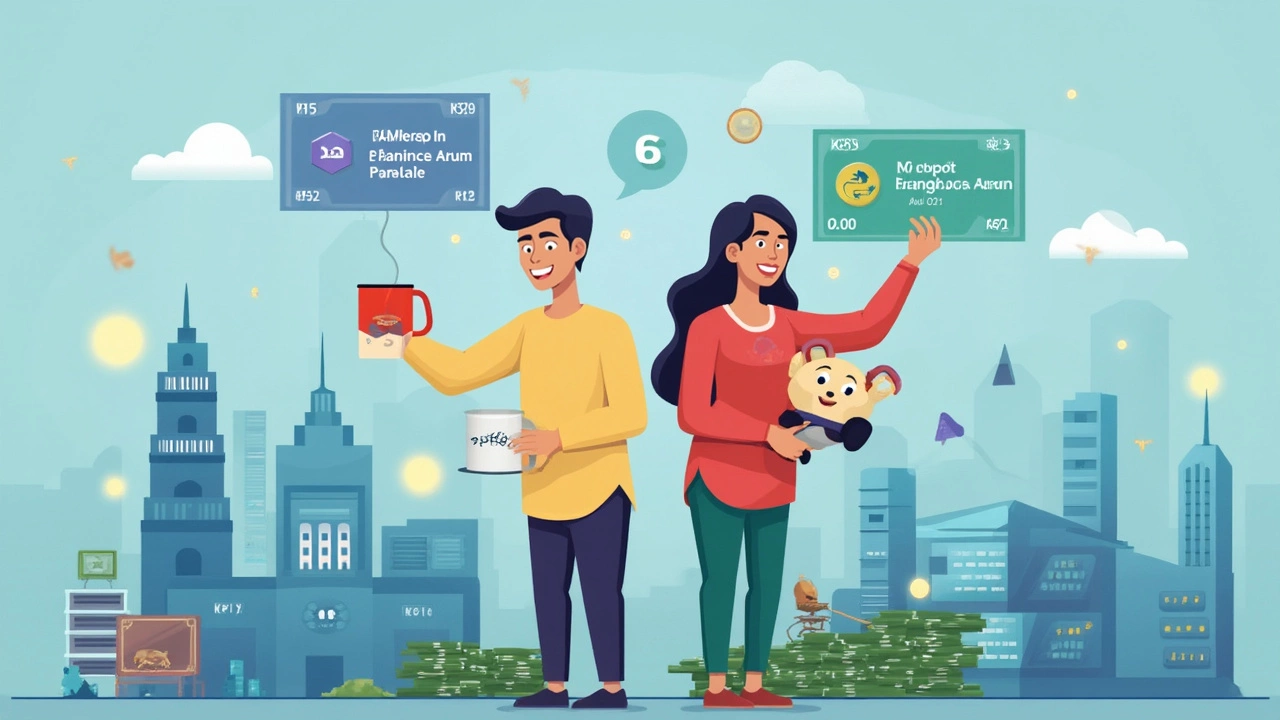Java vs Python Salaries: Which Programming Language Pays More in 2025?

You’d think choosing which language to learn would be about the code, the community, maybe the coolness factor. But let’s be honest—money talks louder than most things. Every coder has searched it at some point: does Java or Python pay more these days? There’s a lot at stake when learning isn’t just for fun. Picking the right side could mean the difference between a nice place in the city center and a cramped flat above a noisy pub. Stick around, because the answer comes with some twists you might not expect.
Why Java and Python Still Reign Supreme in 2025
Let's get something out of the way: Java and Python have been around forever in tech years, but neither is what you’d call washed up. Java, pushing 30, keeps getting stronger thanks to its hold on big business—think banks, telecoms, and insurance companies (fun, right?). Python, on the other hand, kicks up dust wherever buzzwords like 'AI,' 'data science,' and 'machine learning' show up. That’s only grown in the last few years.
Look at job boards in the UK or abroad—Java and Python dominate the listings. According to the 2025 Stack Overflow Developer Survey (yep, still a thing), both languages remain in the top 5 for employer demand worldwide. It’s not just hype: recruitment giant Hays said in its 2025 UK Tech Salary Report that Java skills were a must-have for enterprise development, and Python’s been the heart of everything from robotics projects to COVID vaccine research.
Let’s not forget the tech giants. Google still loves Python, and Java’s the backbone of systems at places like Barclays and Vodafone. Even my mate Josh, who always swore he’d never sell out, snagged a cushy Java gig at a big logistics firm just down the road last month. I’ll say this—Java and Python both lead to opportunities, but the paths aren't identical, and the twist comes when you peek under the hood at paychecks.
Salaries: What Do Java and Python Developers Really Make in 2025?
This is what you really came here for, isn’t it? How much do these jobs pay, and which language lands you the bigger pay packet? In 2025, salary numbers in the UK are pretty eye-opening. According to TechUK’s national salary tracker, the median pay for a mid-level Java developer in Birmingham is around £52,000. In London, it shoots up to about £62,000. Python developers? The median in Birmingham is £49,000, while in London it’s about £60,000. Junior roles fall about £10-£15k lower, while seniors (with 5+ years) can see north of £80k, especially if they step into specialized fields or team leadership.
The story shifts a bit if you head outside the UK. In the US, national stats for 2025 from Glassdoor show Python developers earn a median of $123,000, against $120,000 for Java. In Germany and the Netherlands, Python is now edging out Java by about 5-8% on average. But here’s the funny part: when you look at specific sectors, Java still rules finance, fintech, and old-school big firms, where the pay scale is often higher. Python shines brightest in startups, research, AI firms, and companies going crazy over automation or analytics.
Remote work has levelled the field a bit—someone working out of their mum’s cottage in Shropshire might pull London rates if their skills are spot-on. The best freelance contract I’ve seen this year was for a Python developer on a three-month data project, netting them £600 per day. Java contract gigs for mission-critical apps can reach £700 per day, if you’ve got a stack of experience.
If you want the programmer salary UK headlines: right now, Java narrowly takes home the bigger average pay, especially for steady, permanent roles at major corporations. But Python isn’t far behind—sometimes it darts in front if you’re in the right niche.

What Shapes a Developer’s Pay: Beyond Just Java or Python
You’d think the language would be the only thing that counts, but salary is more complicated. For both Java and Python, your years of experience and specialism matter more than ever. Knowing just 'Python' or 'Java' gets you in the door; knowing Django, Spring Boot, or Kubernetes gets you a manager’s business card. In fact, the 2025 Reed Tech Report said Python developers with AI or machine learning skills earned, on average, 12% more than their counterparts focused on web or scripting work. Java developers with experience in enterprise architecture or cloud migration command hefty premiums.
Certifications play a real part, but only if paired with practical experience. The AWS Certified Solutions Architect stamp or the Google Professional Data Engineer cert can push you ahead. Tech recruiters tell me they still see people who drown their CVs in badges but can’t code out of a wet paper bag. Practical projects—open source work, side hustles, contributing to GitHub—go further than another LinkedIn 'course' video.
Company type is another factor. Large, stable firms pay more but expect you to sit through their bureaucracy. Startups might offer shares and ultra-fast growth, but the cash up front is sometimes leaner. My wife, Fiona, always rolls her eyes when she remembers her first Python contract: loads of potential, not much pay until year two. But her last deep learning gig? Paid for our city break to Rome, and then some—it really depends how you play the game.
Smart Moves for Maximizing Your Coding Salary
If you’re weighing your options, here are a few tips I wish someone had told me earlier. First, specialize—but keep an eye on trends. Python’s hot for AI, data, and science jobs. If you nail TensorFlow, PyTorch, or Pandas, you’re golden in the data world. Java’s still top pick for enterprise applications, fintech, and anything that needs to run forever without crashing—as much as people love to joke about Java's 'boring' side, banks trust it for a reason.
- Don’t skip networking. LinkedIn’s not just for recruiters—community groups, meetups (virtual and real), and open source projects can be gold mines for opportunities. The right intro lands you a better job even before it’s posted online.
- Consider hybrid skills: Python with cloud platforms, Java with machine learning libraries. The hybrid devs in my circle—those who branch into DevOps or mobile—are cashing in more than the single-language crowd.
- Location matters less than ever. Remote roles with global companies can mean London pay on Manchester costs; just be ready to prove you can deliver solo.
- Don’t ignore soft skills. Communication, project management, teamwork—these are the bonuses that turn a coder into a team lead (and a fatter paycheck).
- Stay curious. Tech shifts fast; people who jump on new tools and frameworks, or follow up big releases, always put themselves a step ahead—sometimes that’s the deciding factor between you and the guy next to you in the interview.
Choosing between Java and Python isn’t just about the bigger salary. Both hold serious ground—Java keeps its grip on the big businesses, while Python is the Swiss Army knife for future-looking tech. In 2025, the best move isn’t picking sides; it’s building real, hands-on expertise in whichever corner fires you up—and keeping your eyes open for the next big wave.
Write a comment